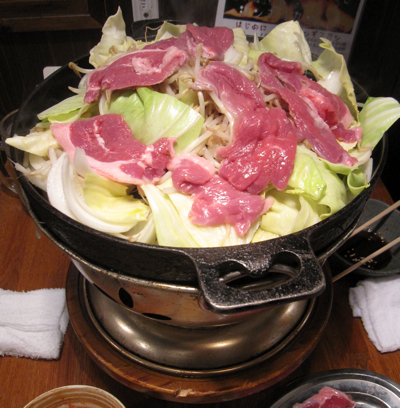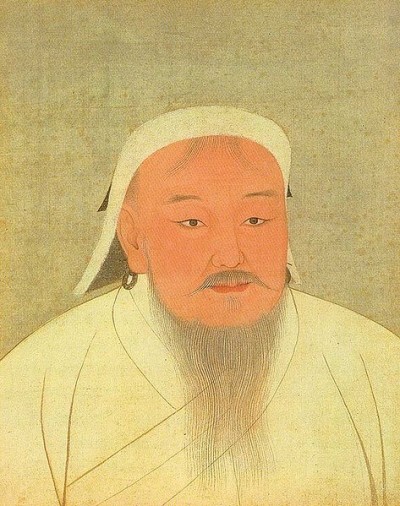This inequality is only sometimes true; although, when it is true, it also holds true that ジンギスカン = incredibly tasty. Check out my review of Kitaichi Club, an Oimachi Jingisukan-ery, over at CNNGo Tokyo.
The Internet is divided on the actual origin of the term jingisukan. English Wikipedia seems pretty confident in its proclamation that the grill resembled the helmets of Mongolian warlords, but I couldn’t find any Japanese links that supported that point. A link provided by Japanese Wikipedia seems to suggest that Japanese chefs gave the cuisine a cool name so that they could deal with a surfeit of sheep. It sprung up in areas with lots of sheep – Hokkaido and other parts of northern Japan – and I can totally see some chef saying, “Where else do they have sheep? Mongolia? Well, hell, let’s call it Genghis Khan.”



Pingback: Tweets that mention How to Japonese» Blog Archive » ジンギスカン ≠ Genghis Khan -- Topsy.com
On a related note, what about バイキング ≠ biking or viking, but in fact = 食べ放題?
That’s a good one!
Doesn’t バイキング get it’s name through association with smorgasbord? A kind of Scandinavian buffet?
Go to Sapporo and revel in the all-you-can-drink beer and jingisukan! Do it.